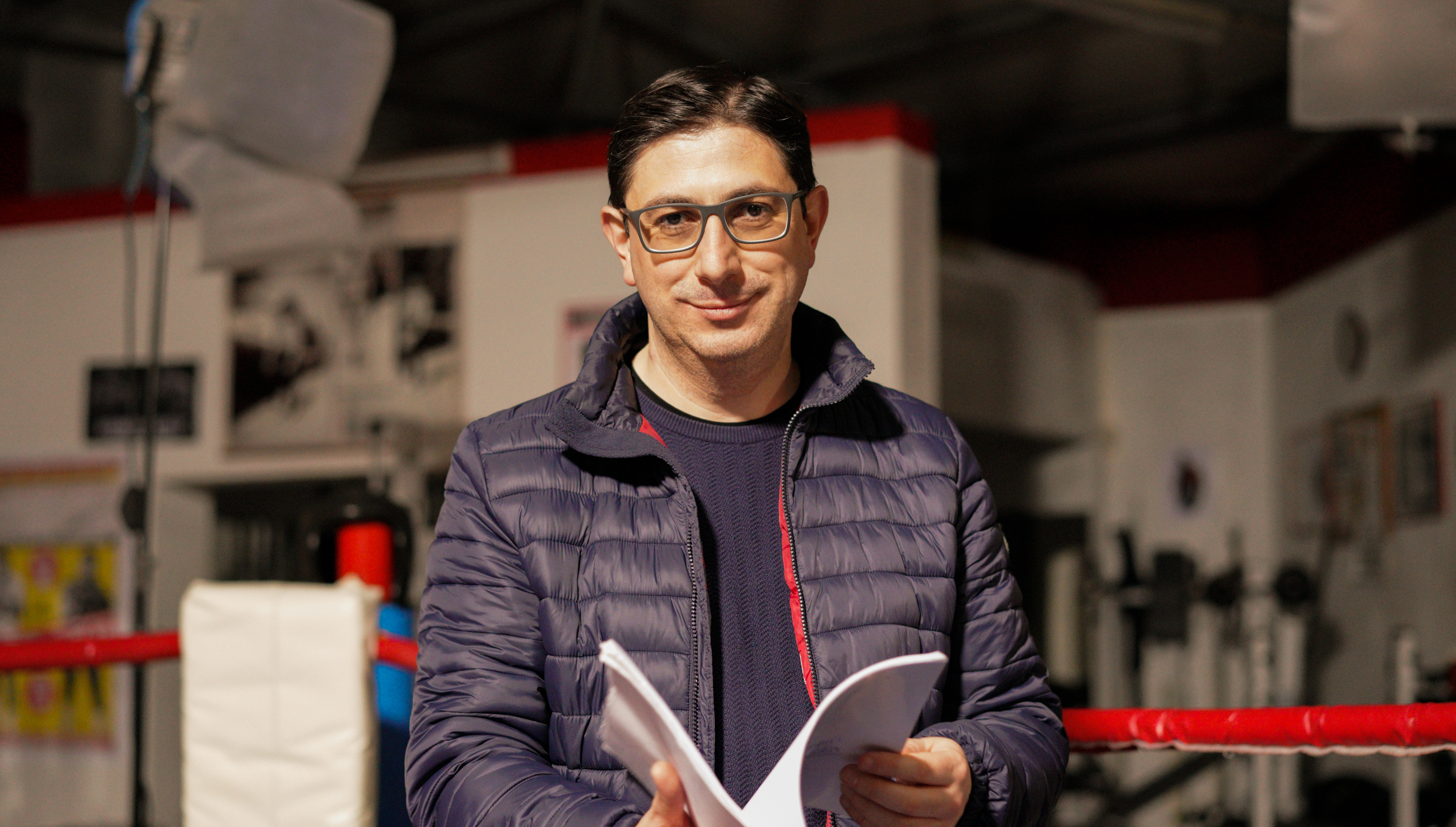Locarno: ‘Gabriel’s’ Nuno Bernardo on Europe’s New Identity, Lensing Boxing, Maturing
By John Hopewell
LOS ANGELES (Variety.com) – LOCARNO, Switzerland — Renown for his pioneering Brit multi-platform fiction (“Sofia’s Diary”) and a show-runner on youth TV series and movies (“Beat Girl,” “Collider”), with “Gabriel,” the prolific Nuno Bernardo returns to his native Portugal for his feature film directorial debut and one of his most personal fictions.
The narrative base is classic prize-fighting fantasy. “ It ain’t about how hard you hit. It’s about how hard you can get hit and keep moving forward,” Rocky says somewhere in his series.
“Gabriel” begins with the titular character, a black teen Cape Verde immigrant, on the receiving end of a tremendous whupping, delivered by a cock-sure preening white fighter Rui. Why Gabriel isn’t even bothering to defend himself is one question, answered as the film flashes back a few months to the kid arriving at his aunt’s place in the high-rise Lisbon immigrant quarter of Olivais. He’s there to find his father, a fighter who could have been a contender, and carve out his own boxing career.
It’s the Olivais setting, a melting pot, and what Gabriel has to go through even to see his father or to score a fight, which sets “Gabriel” apart. Whatever he does, the dice seem loaded against Gabriel from the get-go. Variety chatted to Bernardo as he presented Gabriel in rough-cut at this year’s Locarno First Look, focusing on Portugal.
“Gabriel” deals with identity, you have said. Could you talk more about this?
“Gabriel” addresses issues such as xenophobia, bullying, and immigration. This whole paradigm of the European citizen, generated by migratory movements is bringing a new reality and a new way to grow, to move from child to adult. It is this process of defining identity which is the basis of the history of the film.
One of the attractions of “Gabriel” is its real-life and singular setting….
As director, my goal with “Gabriel” is to show how the Olivais quarter, this small multicultural bubble in the centre of Lisbon was the representation of what is Europe in the present world, with its constant migratory movements, creating a mix of cultures, languages, and nationalities.
The boxing match in “Gabriel” looks and especially sounds tremendously realistic. How did you stage it?
One of my goals with this film was to capture a very realistic boxing match. I spend more than a year attending several real boxing matches. Our team also filmed some of these matches as research. Then we wired Paulo Seco (he also appears in the film) as our consultant to make every boxing element in “Gabriel” 100% accurate. The referee in the boxing match is a real boxing referee; other team’s coach is a real boxing coach, the jury is a real jury. The goal was to make it as real as possible.
You broke through with “Sofia’s Diary.” That was in 2005. I believe “Gabriel” is your directorial debut as a feature-film director. Why now? Or was it that this story was best treated as a feature film and, give its urgency, made now.
I directed the first season of “Sofia’s Diary”, but when the show became a hit and started to be an international hit, I needed to focus more on producing and writing (show running). Over the last decade, I also directed a few TV shows but never a feature film. When the script of “Gabriel” was evolving, I felt that the story was more cinematic than our previous work, relevant and urgent related to racism issues it reflects, and it deserved to be seen in a big screen. I applied with the script to the ICA Portuguese Film Institute funding scheme for first-time directors, and they believed in the project funding it.
Do you think “Gabriel” shares characteristics with your multi-platform series?
Gabriel was written and developed to be a feature-film for theatrical release. We have a digital marketing campaign, but it’s a one-format type of story. Anyway, it features young adults as characters and also aims at a young audience, so in that sense, it shares some characteristics with “Beat Girl” or “Collider.” But I see this a more adult take on the story, a more realistic, a more relevant – not just an entertaining film, but a story that addresses important issues in a more mature way than previous work.
What are you currently working on?
“Sixth Sense High.” A TV Series set in a boarding school for kids with paranormal gifts. The series will address the issue of being different and how you deal, in your teenage years, with the notion of being different and how you react to social exclusion and bullying.


